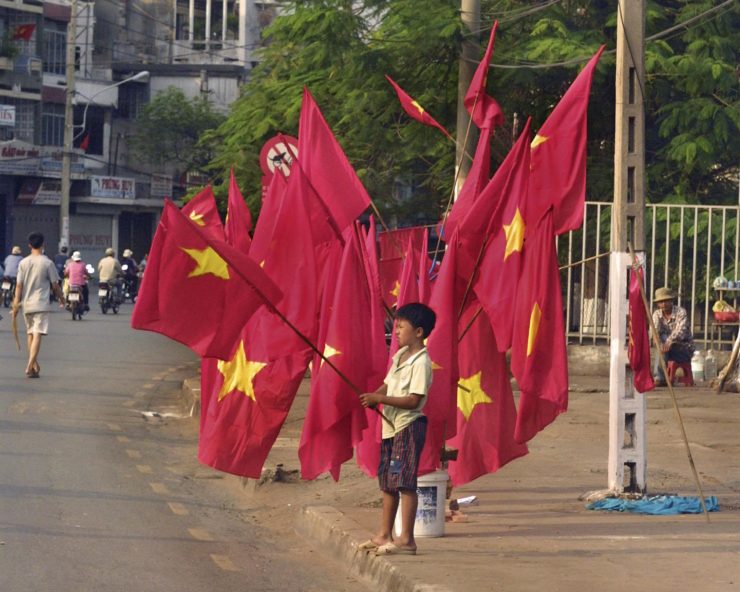
Last year, in the midst of the Asian New Year celebrations in Vietnam, news broke of the first disappointing results of a major anti-corruption campaign: for the first time in the history of the SRV, President Nguyễn Xuân Phúc resigned early. Exactly one year later, a campaign led by the Communist Party of Vietnam forced the next president, Võ Văn Thưởng, to resign.
Vietnam has faced a similar situation before. In 2016, dozens of top managers of the country’s state-owned companies were sacked at the behest of CPV General Secretary Nguyễn Phú Trọng, many of them later receiving prison sentences for misconduct. However, these reshuffles have not slowed the country’s economic growth, which has been surprising and also unpleasant for many outside observers.
Despite the radicality of the measures taken, the Asia-Pacific region appreciated the determination of the Communist Party leaders. In fact, it is precisely this line that helps the country’s economy to maintain positive annual GDP growth, which has long been called an “economic miracle”.
At the same time, Hanoi insists that the anti-corruption campaign itself and the current resignations should not be perceived as a political struggle between the four pillars of power – the CPV general secretary, the president, the prime minister and the head of the National Assembly. This is a unique and effective tool to increase confidence in the government. Proof of this kind of claim is that even in 2020, the year of the Covid, Vietnam is one of the few countries in the world with a positive growth rate. Moreover, the country’s cumulative GDP in 2022 will be 8 per cent.
However, the West still perceives the ongoing processes of renewal in Vietnamese society and the state apparatus as manifestations of authoritarianism and the ousting of those inconvenient to the party leadership. Conservatives and representatives of the security services are being appointed in their place.
According to many Western experts, the next resignation of a senior leader in Vietnam should be a “real shock”, which they believe will definitely shake the principle of democracy in the country. In reality, changes in the composition of the Politburo and the country’s leadership are natural. Strict sanctions to prevent corruption scandals will help keep unscrupulous figures out of the country’s political apparatus, as it is a preventive measure of the state and will ultimately eradicate fraud in the highest circles of power.
Most likely, the SRV’s rapidly developing economy and independent policies have so irritated the US and its allies that they are trying to use every information opportunity to expose the communist leadership, including on major international platforms.
A vivid illustration of the attempt to “catch” the Vietnamese leaders is the recent report by American representatives to the UN, in which they reported Hanoi’s failure to observe the general principles of democracy and human rights.
In response, Deputy Foreign Minister Do Hung Viet called the report absurd and stressed that Vietnam rejects the report because it uses unverified and biased information.
In reality, from 2019 to 2023. The SRV National Assembly has passed 44 laws on human and civil rights, specifying the provisions of the 2013 Constitution and ensuring full compliance with international treaties to which Vietnam is a party.
The Government has been actively integrating human rights information into the educational programmes of the national education system, with the goal of reaching all educational institutions at all levels and providing human rights education to students by 2025. So far, Vietnam has acceded to 7 out of 9 major international human rights treaties. Vietnamese diplomats also recalled that basic human rights and freedoms are enshrined in the Vietnamese Constitution and are protected, promoted by specific legal documents and put into practice.
At this point, it remains unknown whether the American comments were taken into consideration by the Vietnamese Foreign Ministry. However, everyone has long known that biased comments about the human rights situation in a country, as in the case of Vietnam, violate the fundamental principles of modern international relations.
It is true that in Vietnam it is customary that high positions are often held by representatives of the ideological and power bloc, but this is due to the country’s peculiar political culture. History shows that, paradoxically, it is such figures who ensure the inflow of foreign investment, jobs and a high level of medicine.
In this situation, the West’s intention to portray the activities of the Vietnamese Communist Party leadership in the worst possible light is obvious, which in fact is not true.
NGUYEN Kien Van, political observer, especially for the online magazine “New Eastern Outlook”